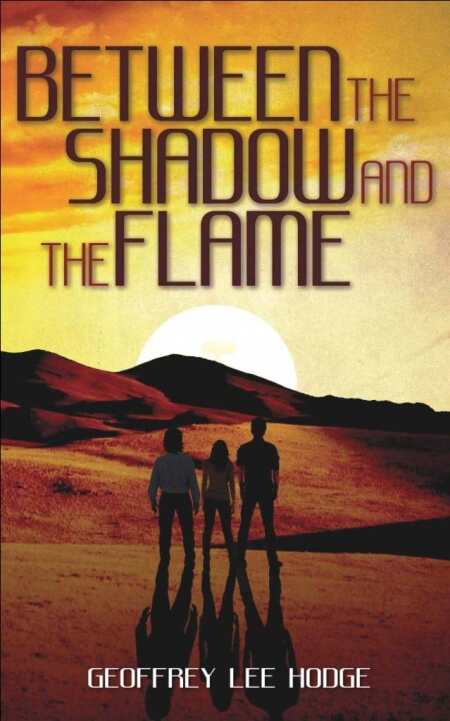Between the Shadow and the Flame
Gripping adventure scenes alternate with lucid and accessible discussions of philosophy, science, and religion in Geoffrey Lee Hodge’s debut novel. Set amidst the devastation of a pandemic and the aftereffects of global nuclear war, Between the Shadow and the Flame is the tale of three survivors who join together in search of the mysterious prophet and cult leader thought to be behind both the deadly disease and the nuclear holocaust—the same man who predicted that the final battle would be determined by “three travelers.”
Sophia, a lover of philosophy, Newman, a former seminarian turned cult member, and Hyle, a skeptical young science writer, are stalked by paramilitary death squads and black helicopters. They battle hunger, the elements, and their own fear as they journey across the devastated country in a landscape of nuclear winter. As they travel, they tackle the great questions: Does God exist, and if so, what may we know about him? Can religion and science agree? Do we have free will? What is the structure of reality, and what is our place in it? What, in the final analysis, is really important? Taking the book’s title from Plotinus’s description of the relationship between humanity and the One, in which the philosopher places humans “on the edge of that darkness between the shadow and the flame,” Hodge examines how philosophy has helped humanity navigate life on that precarious edge.
Hodge is a masterful writer whose vivid descriptions and precise prose carry each death-defying action scene to its breathless conclusion. He is equally skilled at weaving the historical threads of philosophy, science, and religion into intense debates between friendly adversaries, although readers may at times feel that the transitions between rapid-fire action scenes and thoughtful discussions are too abrupt. It is uncertain whether adrenaline-addicted readers, who will definitely enjoy the last-minute rescues made possible by clever thinking and the appearance of a mysterious, dark stranger, will also appreciate the book’s slower-paced, though no less engaging, forays into the intellectual realm.
Errors in punctuation and typography are few and include a general lack of commas to set off names and an occasional missing hyphen. While the book’s small print may displease some readers, its layout and cover design are attractive.
Hodge, who holds an undergraduate degree from Colgate University and a master’s degree from WPI, serves as vice president of a biotech company, writes and speaks frequently on innovation in biopharmaceutical manufacturing, and is the holder of two US patents. His exploration of the interface among philosophy, science, and religion began when his four-year-old daughter was diagnosed with leukemia, making his search for meaning both personal and imperative.
Hodge’s first effort makes for exciting reading on many levels. The three protagonists of his timely, and hopefully not predictive, tale manifest some of humanity’s best characteristics: compassion; strength; and the belief that, in a world in which all seems lost, it is still possible to find meaning and make a difference.
Reviewed by
Kristine Morris
Disclosure: This article is not an endorsement, but a review. The publisher of this book provided free copies of the book and paid a small fee to have their book reviewed by a professional reviewer. Foreword Reviews and Clarion Reviews make no guarantee that the publisher will receive a positive review. Foreword Magazine, Inc. is disclosing this in accordance with the Federal Trade Commission’s 16 CFR, Part 255.

